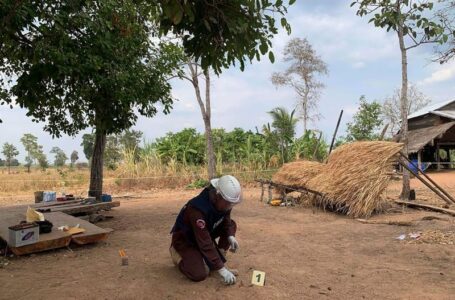Following key wins, Trump poised for cabinet completion in record time
Poverty rate not declining rapidly enough, Ibon Foundation says


THE GOVERNMENT must find sustainable and long-term solutions to generate quality jobs to reduce poverty more rapidly, according to the Ibon Foundation.
“Falling poverty should always be good news. But the government should be asking why poverty is still above pre-pandemic levels after a year and a half of the economy reopening, and despite growth hyped as among the fastest in Asia,” Ibon Foundation Executive Director Sonny A. Africa said in a Viber message.
“Poverty persists not because there aren’t enough welfare programs but because the economy isn’t creating enough jobs and incomes,” he added.
The Philippine Statistics Authority reported a poverty rate of 22.4% in the first half of 2023, lower than the 23.7% from a year earlier. This was equivalent to a poor population of 25.242 million.
The government is hoping to bring the poverty rate to single-digit levels by 2028.
“Poverty incidence even according to the much too low poverty threshold will not be reduced to single digit levels by 2028. Poverty reduction from reopening after 2021 is already an artificially fast pace but even this isn’t enough; what more with poverty incidence actually increasing between 2018 and 2023,” Mr. Africa said.
“Poverty is stubborn from high disguised joblessness and because there is so much informality in the economy,” he added.
The National Economic and Development Authority (NEDA) said in a statement that the reopening of the economy and lifting of coronavirus disease 2019 (COVID-19) restrictions helped the country recover from the pandemic.
It also noted the government’s efforts to hold down inflation and improve labor market conditions.
“The reopening of the economy is certainly the main factor in the reported decline between the first semester of 2021 and the same period in 2023. This isn’t a constructive action to reduce poverty though, and is just a passive lowering of restrictions that were too harsh and too long to begin with,” Mr. Africa said.
“It’s also odd to claim successful efforts to combat inflation — inflation averaging 7.2% in the first semester of 2023 is much higher than the 4% in the same period in 2021,” he added.
The NEDA said it will implement initiatives and policy interventions to further reduce poverty, citing food stamp programs, ramping up investment to generate jobs, and improving the government’s fiscal situation.
“Substantial amounts of cash assistance will provide momentary relief for poor families and can reduce officially reported poverty,” Mr. Africa said.
“This kind of statistical improvement is artificial, though, and sustainable poverty reduction comes from more jobs and better incomes for every Filipino. This can only come from structural transformation of the economy with Filipino industrialization astride modernized agriculture,” he added. — Luisa Maria Jacinta C. Jocson











